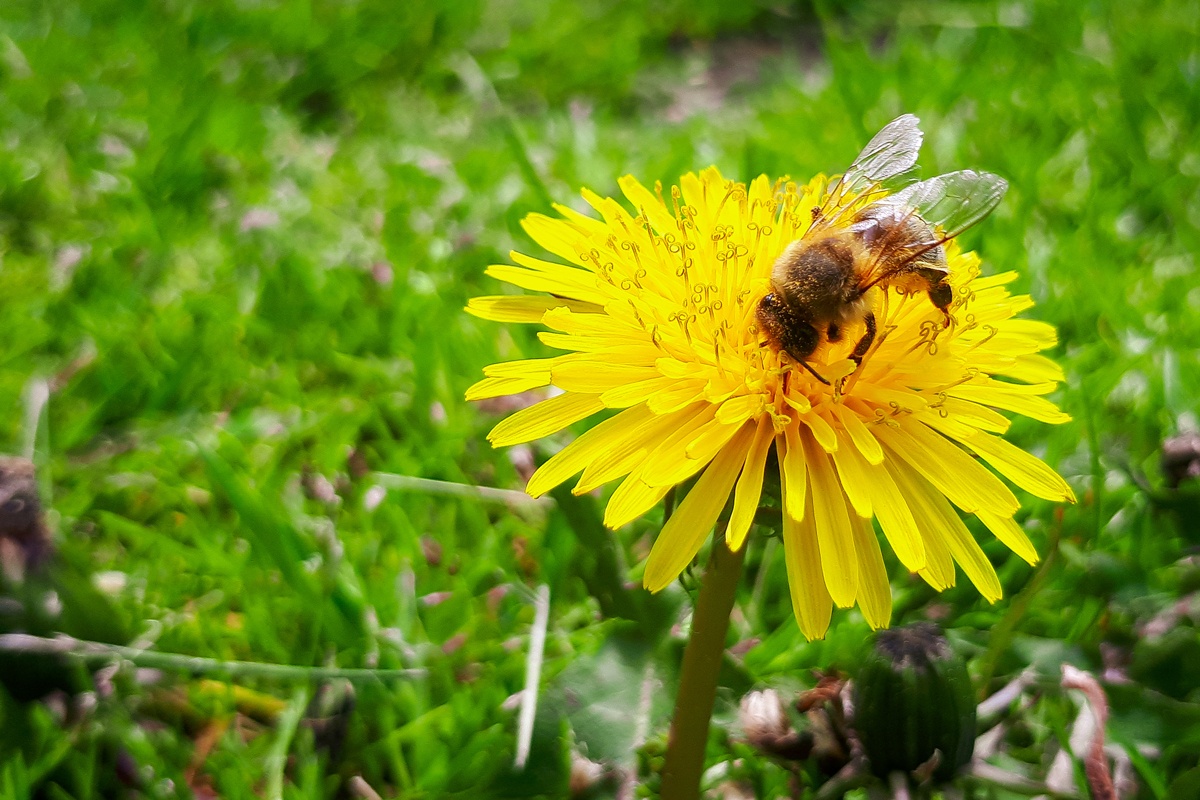The perfectly manicured, clean-cut lawn has been a symbol of the American Dream since the 1800s. But a new trend from across the pond might change that. The No Mow May campaign allows homeowners to rethink yard maintenance while helping the environment.
Protecting Wildlife
During May, allowing grass to grow can create a pollinator haven in your yards. Not cutting the grass provides early-season foraging for 400 species of bees native to Minnesota. By nourishing newly emerging pollinators, you give bees a helping hand in bringing flowers and other plants alive through pollination.
Statewide Change
All over the state, No Mow May is taking over neighborhoods one yard at a time. The cities of New Brighton, Edina, West St. Paul, and Mendota Heights all have programs encouraging residents to store their mowers for a month to create pollinator habitats and build awareness. And the buzz is working. Out in southwest Minnesota, the city of Jordan just voted in favor of starting programming this spring for their residents.
Jordan is no stranger to helping pollinators. “It’s not out of character for us to do something like this,” says Jordan Mayor Mike Franklin.
A few years ago, the city helped the middle school replace a portion of their lawn with natural prairie grasses, and it has also worked to protect other pollinator-friendly habits around the city. So, when No Mow May was brought to Mayor Franklin's attention, it just made sense for Jordan to give it a go. “It’s in line with our other sustainability initiatives and calls attention to something important, making sure that our pollinator habitat continues to be something we’re paying attention to.”
Show Your Support for Pollinators
You can make a difference for pollinators by limiting your yard work this spring. Edina Sustainability Manager Grace Hancock notes that participating in No Mow May supports all of Minnesota's pollinators—including native bees, honeybees, ants, flies, beetles, birds, and butterflies. Avoiding mowing protects overwinter habitat for native bees and allows plants rich in nectar and other nutrients to grow as pollinator food.
Want to learn how to advocate in your city for No Mow May? Contact our Local Government Program Manager, John Anderson.
Let all your neighbors know you support Minnesota pollinators by displaying this printable sign.

